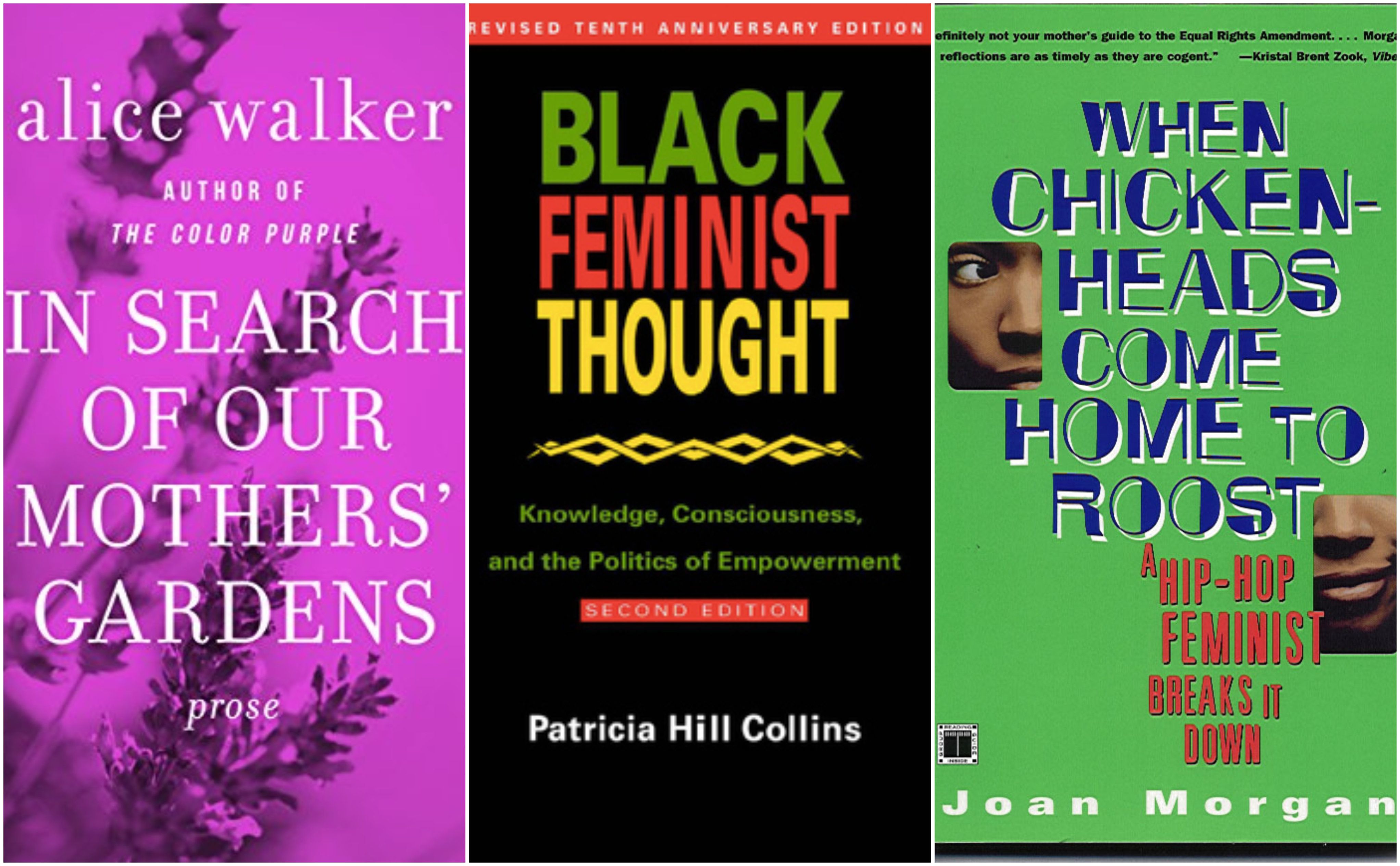Good Reads
As I listened intently to Black Girl Podcast while doing chores or whatever it is that I do with the sound of BGP feeding me life in the background, I was given pause by co-host Scottie Beam's question: Are you black or a woman first?
In trying to answer this question for myself and listening to the girls struggle to do so, it finally opened my eyes to why a black feminist movement is imperative to the culture. It's because for a lot of us, our womanhood is primarily attached to our identity as a person of color.
I cannot identify my struggles as a woman without exploring my intersectional place in this world as a black individual, first.
Therefore, a white feminist movement doesn't serve me, given the privilege that allows them to focus on their one role in this world. And although, historically we all have struggled to integrate the f-word (feminist) without the negative connotation that comes with associating your identity with feminism, we've reached a point where that f-word is thrown around almost too loosely. Nonetheless, I'd be lying if I didn't admit that I would like to find my place amongst the feminist forces of women who have come before me.
And although I don't directly identify as a feminist, many of my values are similarly aligned with the goals of the black feminist movement. So, I've made it a point to gain the perspective of all the black women who came before me, those who have helped us make the transition from simply being "strong black women" to black feminist over the course of time.
Those who made way for a movement that we could call our own, and their writing was and is imperative to these efforts.
That said, this prompted me to create a summer reading list filled with the feminist findings of my own people as my starting point. I asked a diverse group of women from various backgrounds the black feminist books I should be reading and these were their recommendations. Click through the gallery below:
“When Chickenheads Come Home to Roost” by Joan Morgan
In When Chickenheads Come Home to Roost, Joan Morgan speaks from a perspective that is still relevant to millennial women and a great starting point for those of you who are like me and still trying to figure out what your feminism ought to look like. Morgan seeks out a type of feminism that is nuanced and gives way to the idea that feminism is flexible (and not at all a one size fits all experience). She speaks on enjoying hip-hop (guilt-free), denouncing ourselves from the "Strong black woman" label, and the oxymoron of wanting liberation but enjoying the perks that naturally come with our feminine wiles. Joan Morgan makes feminism relatable for even the most uninterested reader.
“A Taste for Brown Sugar” by Dr. Mireille Miller-Young
A Taste for Brown Sugar highlights the sexuality of black women through the lens of those in the porn industry. She intertwines history with the present day tellings of sex workers whom she interviewed during her research. Together, these tales provide insight into the society's need to hypersexualize black women and the actual sexual desires of these ladies, whether those desires be fueled by their professional development or their day-to-day lives.
“Sister Outsider” by Audre Lorde
Sister Outsider is a literary quilt of 15 essays and speeches collected over the course of eight years. Lorde challenges the notions of bigotry surrounding several subjects including sexism, homosexuality, and class by offering reflective insights and hope from the perspective of a lesbian, activist, mother of two, and likely much more.
“Where We Stand: Class Matters” by Bell Hooks
Many people pinpoint the issues within the black community without so much as a suggestion to help create opportunities for upward mobility for people of color. However, black feminist pioneer Bell Hooks offers a potential means of creating advancement opportunities in our communities in Where We Stand: Class Matters, as she focuses on the significant intersections of class and race. She does so by sharing unique insights gained through her own success and experiences throughout life, including her time in New York but by also wholly reflecting on her past in all capacities--including her childhood in Kentucky.
“Black Feminist Thought: Knowledge, Consciousness, and the Politics of Empowerment” by Patricia Hill Collins
Black Feminist Thought: Knowledge, Consciousness, and the Politics of Empowermentcomes highly recommended, as Patricia Hill Collins explores the struggles of race and gender through the early roots of feminism. It ties in the theories and concepts of several different women deemed black feminists (both inside and outside the world of academia) -- trailblazers such as Angela Davis, Bell Hooks, Alice Walker, and Audre Lorde expound upon what it means to be black and woman in this world through fictional pieces, poems, and music.
“In Search of Our Mothers' Garden” by Alice Walker
Very intimate and reflective, Walker's first work of nonfiction, In Search of Our Mothers' Garden, speaks on her intersectional experiences surrounding black womanhood, motherhood, feminism, as well as those experiences created through her professional career as a writer. She narrates this biography of sorts through 36 different essays ranging in topics, from politics down to the personal.
“Ain’t I a Woman: Black Women and Feminism” by Bell Hooks
Ain't I a Woman: Black Women and Feminism takes on the historical mistreatment of the black woman by drawing from slavery to better help us understand why black women are, as Malcolm X once stated, the "most disrespected person in America," and how the significance it has had in shaping who we are as a culture. Amazon describes this as being critical to place on every feminist's bookshelf.
What are some books on your summer reading list?
From Your Site Articles
Related Articles Around the Web
ALSO ON XONECOLE
